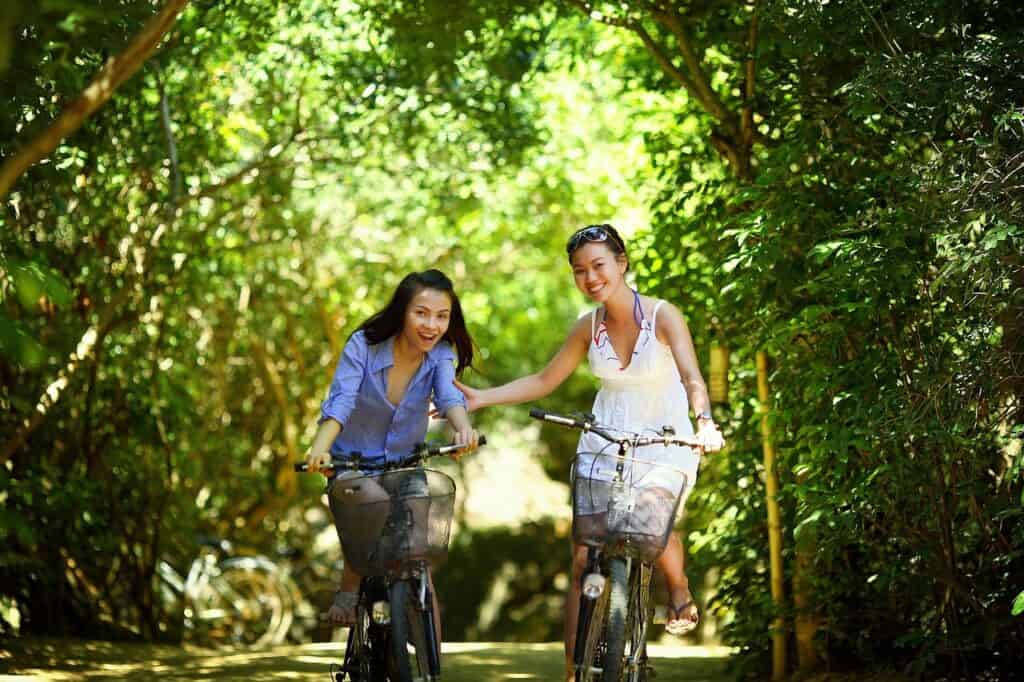We may earn money or products from the companies mentioned in this post. This means if you click on the link and purchase the item, I will receive a small commission at no extra cost to you ... you're just helping re-supply our family's travel fund.

Traveling well means more than just seeing new places, it’s about nurturing your body, calming your mind, and energizing your spirit. Healthy travel balances exploration with restoration, blending movement, mindfulness, and meaningful cultural connection. When you choose destinations and activities with intention, each journey becomes a source of vitality and growth. Here are eight ways to make your next trip both memorable and health-focused.
1. Research Destinations with Wellness Infrastructure

Choose destinations that actively promote health and sustainability. Look for places with clean air, walkable layouts, and a strong focus on green living. For instance, Iceland ranks among the top ten countries for air quality, while Switzerland offers over 65,000 km of scenic hiking trails. Seek eco-lodges, local wellness programs, or towns known for spa culture. Avoid overcrowded tourist centers where pollution and stress levels are higher. A destination with a wellness framework sets the tone for a rejuvenating trip.
2. Incorporate Active Exploration

Physical activity naturally enhances travel satisfaction and energy. Opt for activities like hiking, kayaking, or cycling adventures that blend fitness with discovery. Studies show that walking five miles daily while traveling can burn up to 500 calories, improving endurance and mood. National parks, coastal routes, and nature trails allow movement without monotony. Pair these with restorative breaks to maintain balance. Active travel boosts cardiovascular health while letting you experience destinations from an authentic, ground-level perspective.
3. Immerse Yourself in Natural Settings

Nature-centered destinations promote mental clarity and stress reduction. According to research by the University of Exeter, spending at least 120 minutes in nature weekly significantly enhances well-being. Consider places with beaches, forests, or mountains that encourage outdoor engagement. Forest bathing in Japan or exploring Norway’s fjords are prime examples. Sunlight exposure increases vitamin D levels, supporting immune function and mood stability. Immersing in nature’s calm rhythm helps reset the mind, reduce anxiety, and restore inner balance.
4. Prioritize Fresh and Local Cuisine

Healthy travel starts with mindful eating. Choose destinations where local food culture emphasizes freshness and nutrition. The Mediterranean diet, for instance, lowers heart disease risk by 30% due to its focus on olive oil, fish, and vegetables. Eat at markets, farm-to-table restaurants, or cooking classes that highlight native ingredients. Avoid chain eateries offering processed foods high in sodium and sugar. Local dining not only supports community farmers but also keeps your digestive system and energy levels stable during your journey.
5. Choose Mindful and Cultural Activities

Integrating mindfulness into your travel deepens awareness and joy. Yoga, meditation, or tai chi retreats help align physical and emotional health. Studies reveal mindfulness practices can reduce cortisol levels by up to 32%, decreasing stress. Combine this with cultural immersion such as joining a pottery workshop in Greece or attending a tea ceremony in Japan to foster presence and appreciation. These mindful activities help travelers slow down, observe, and engage with cultures on a more meaningful, heart-centered level.
6. Balance Activity with Rest and Reflection

A healthy journey blends action with recovery. Overpacked itineraries can elevate fatigue by 40% and reduce travel satisfaction. Schedule quiet mornings, spa sessions, or leisurely strolls between excursions. Wellness resorts often design “rest days” to reset your body’s natural rhythms. Prioritizing sleep, ideally seven to eight hours helps maintain immune strength and emotional balance. Remember, relaxation isn’t idleness; it’s essential recovery. A balanced rhythm ensures that your adventures remain invigorating instead of exhausting.
7. Check Environmental and Health Conditions

Environmental awareness is vital for wellness-oriented travel. Examine air quality indices, UV levels, and water safety before booking. Cities like Vancouver and Zurich consistently score above 90 on global livability and cleanliness scales. Avoid destinations with severe pollution or unsafe climates. Hydration and proper acclimatization are key when visiting high-altitude areas. Carry reusable bottles, sunscreen, and basic health kits. A little preparation ensures your physical comfort and prevents common travel ailments that can derail your trip.
8. Support Eco-Friendly and Local Initiatives

Travel health extends beyond personal well-being, it includes community and environmental vitality. Eco-tourism supports this harmony by reducing carbon footprints and empowering locals. Globally, sustainable travel has grown by 60% over the past five years, reflecting travelers’ changing priorities. Choose accommodations using renewable energy, volunteer programs, or wildlife conservation tours. Purchasing local crafts or produce helps circulate income within communities. Supporting eco-conscious efforts transforms your journey into a positive force for both personal and planetary health.